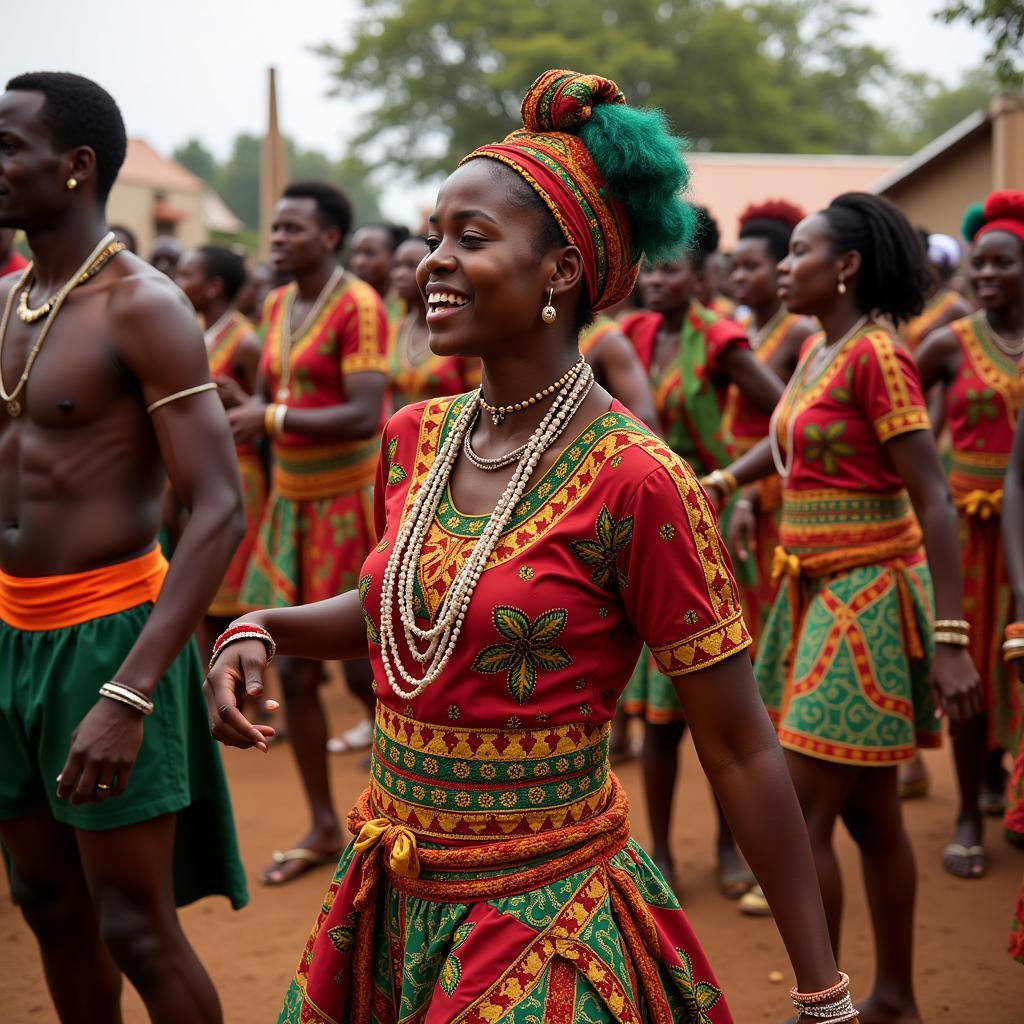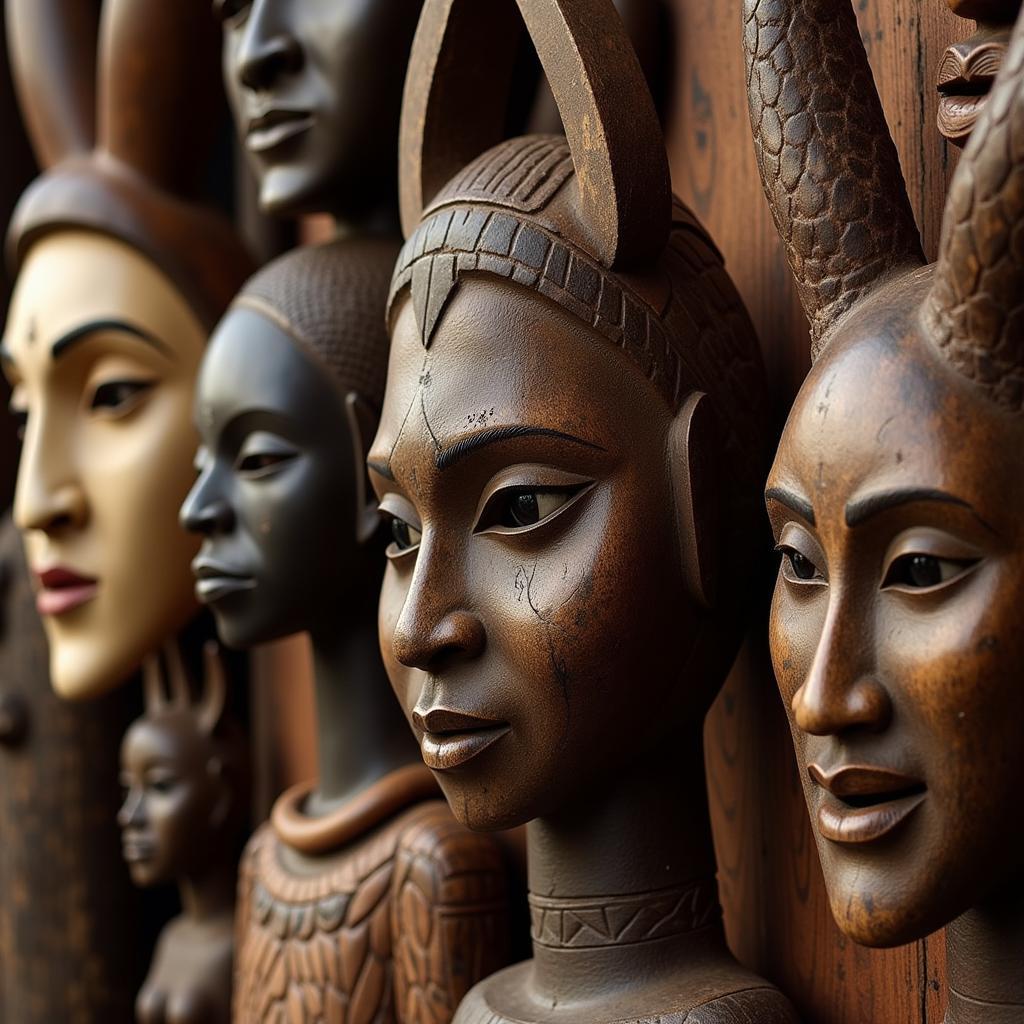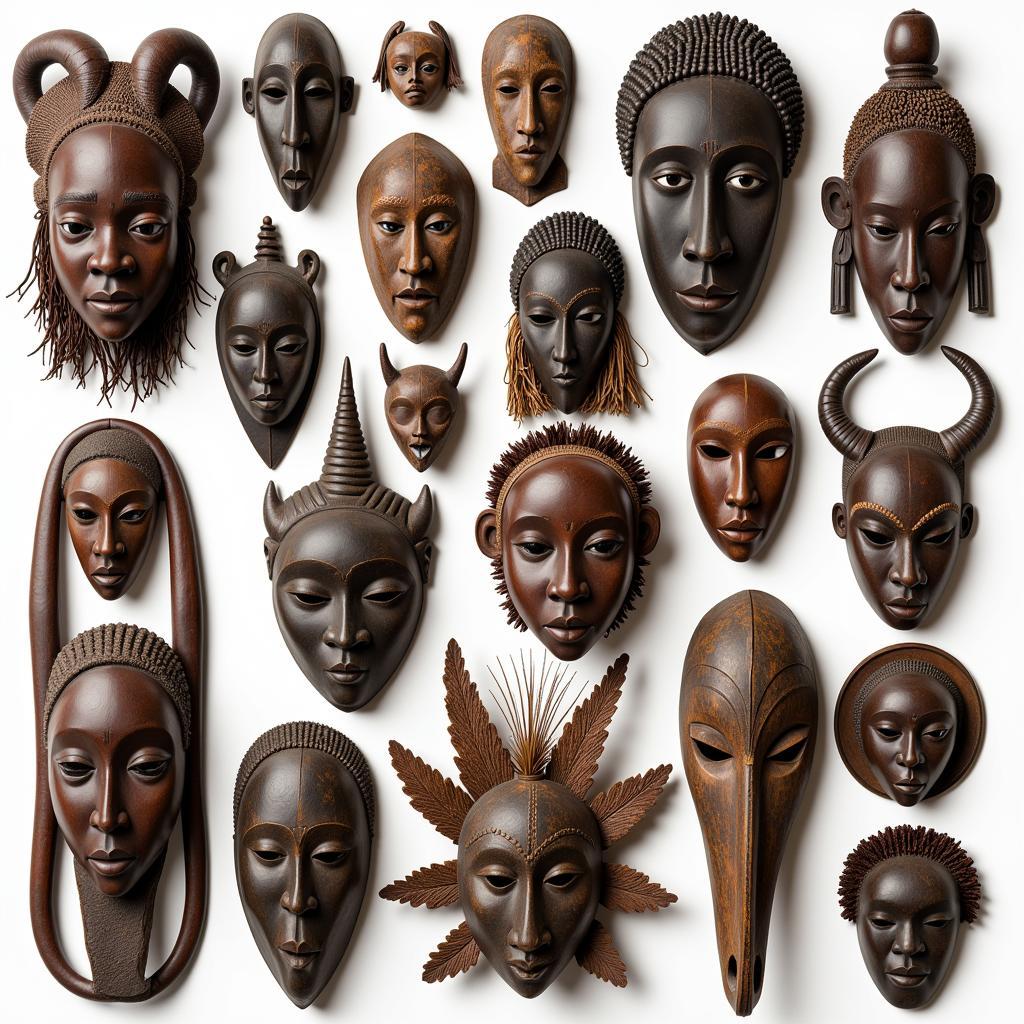The Ultimate Guide to an African Black Soap Skin Routine
African black soap has taken the skincare world by storm, and for good reason. This natural wonder, with its roots deep in West African tradition, offers a gentle yet effective way to cleanse and care for your skin. This guide will explore everything you need to know about incorporating African black soap into your skin routine for a healthy, radiant complexion.
For centuries, communities across West Africa have crafted authentic black soap, each with its unique blend of locally sourced ingredients like plantain skins, cocoa pods, palm kernel oil, and shea butter. This traditional method results in a soap that’s naturally rich in antioxidants and vitamins, making it a powerful ally in your skincare journey. Want to learn more about skincare tailored to specific needs? Check out african american skin care issues.
Understanding the Benefits of African Black Soap
What makes African black soap so special? It’s packed with natural properties that cater to a variety of skin concerns. Its antibacterial and antifungal properties make it excellent for acne-prone skin, helping to combat breakouts and soothe inflammation. The soap’s exfoliating qualities gently remove dead skin cells, revealing brighter, smoother skin underneath. It’s also known for its ability to help fade dark spots and hyperpigmentation, promoting a more even skin tone. Furthermore, African black soap is naturally moisturizing, leaving your skin feeling soft and supple, not dry and tight.
Choosing the Right African Black Soap
Not all African black soaps are created equal. When selecting a soap, look for authentic, unrefined versions. These often have a lumpy, irregular shape and a deep brown or black color. Beware of soaps that are brightly colored or perfectly shaped, as these may contain artificial ingredients and fragrances. For those looking for a ready-to-use option, check out African Black Soap Body Lotion by Shea Moisture Body Lotion. Reading reviews and researching different brands can help you find a high-quality soap that suits your needs.
Building Your African Black Soap Skin Routine
Here’s a step-by-step guide to incorporating African black soap into your daily routine:
- Lathering: Gently lather the soap in your hands with warm water. If using raw black soap, break off a small piece and lather it directly. If you have sensitive skin, consider creating a liquid soap by dissolving a chunk in warm water.
- Cleansing: Apply the lather to your face and body, using gentle circular motions. Avoid harsh scrubbing.
- Rinsing: Rinse thoroughly with lukewarm water, ensuring no soap residue remains.
- Moisturizing: Follow up with a moisturizer suitable for your skin type. This is crucial, as African black soap can be drying for some. You might consider African Black Soap Problem Skin Moisturizer for targeted hydration.
- Frequency: Start by using the soap 2-3 times a week and adjust based on your skin’s response. If your skin feels dry or tight, reduce usage.
How often should I use African black soap?
Start with 2-3 times a week and adjust according to your skin’s needs.
Can I use African black soap on my body?
Yes, African black soap can be used on both the face and body.
“In my practice, I’ve seen remarkable results with African black soap,” says Dr. Abena Osei, a dermatologist specializing in natural skincare. “Its gentle exfoliation and cleansing properties make it a valuable addition to any skincare routine.”
Addressing Common Concerns
Some individuals experience dryness or irritation after using African black soap. This can often be attributed to using too much soap or not moisturizing adequately. Remember, a little goes a long way. Always follow up with a moisturizer to keep your skin hydrated. If irritation persists, discontinue use and consult a dermatologist. Curious about the price in different regions? Check out the African black soap price in India.
Tips for Maximizing Results
For optimal results, store your African black soap in a cool, dry place to prevent it from melting or becoming mushy. Avoid using hot water, as this can strip your skin of its natural oils. Consider using a washcloth or sponge for gentle exfoliation. “African black soap is a testament to the power of nature,” adds Dr. Kofi Asante, a traditional healer from Ghana. “Its simplicity and effectiveness are what make it so enduring.” Learn more about the availability and uses of African black soap in Kenya from this insightful resource: African black soap ke.
Conclusion
Incorporating an African Black Soap Skin Routine can be a transformative experience. By understanding the benefits, choosing the right soap, and following a consistent routine, you can unlock the power of this ancient beauty secret for healthier, more radiant skin. Remember to listen to your skin and adjust your routine as needed. African black soap is a powerful tool, and with the right approach, it can help you achieve the beautiful, healthy skin you deserve.
FAQ
- Is African black soap good for all skin types? While generally beneficial, those with extremely dry or sensitive skin should proceed with caution and use sparingly.
- Can African black soap help with eczema? Some individuals find it helpful for eczema, but it’s important to patch test first and consult a dermatologist.
- How long does a bar of African black soap last? Depending on usage, a bar can last several weeks or even months.
- Where can I buy authentic African black soap? Look for reputable online retailers or specialty stores that sell natural beauty products.
- Can I use African black soap with other skincare products? Yes, but avoid combining it with harsh chemicals or exfoliants to prevent irritation.
- Does African black soap lighten skin? It can help fade dark spots and hyperpigmentation, promoting a more even skin tone, but it doesn’t bleach the skin.
- Is African black soap vegan? Traditional African black soap is typically vegan, as it’s made from plant-based ingredients.
Other common questions about using African black soap include its effectiveness on different skin types, the frequency of use, and potential side effects. You may also want to explore related topics such as natural skincare remedies and African beauty traditions.
For further assistance, contact us at +255768904061, email [email protected], or visit us at Mbarali DC Mawindi, Kangaga, Tanzania. Our customer service team is available 24/7.




